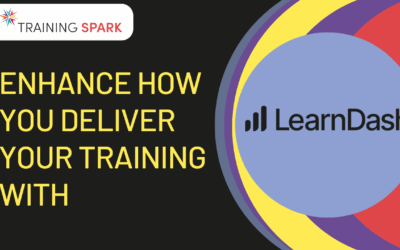It’s no secret that we’re big fans of cohort-based online courses. We believe there is huge untapped potential for course creators and training providers in this online course format.
Cohort-based courses – where a group of learners study together over a number of days, weeks or months – can really help your learners achieve their goals. These often mix live group video sessions with on-demand self-study online materials (you can learn more about cohort-based courses here).

But what are the benefits of cohort-based online courses for training providers and course creators?
1. Increased impact on your learners
Ultimately you’ve created an online course because you have a valuable skill or knowledge to share. You’re passionate about using this expertise to create a transformation for your learners – and they want your help in doing just that.
Delivering a cohort-based online course can help them achieve this transformation.
Compared with typical on-demand elearning courses, cohort-based courses can offer more flexibility, increased motivation, additional personalisation, reinforcement opportunities and the chance to learn from other learners. (Here’s a handy list of benefits for learners in cohort-based courses.)
Designed well, a cohort-based course can have a big effect on your students. And there’s no better feeling than delivering a learning experience that has a long-lasting impact on your learners.
2. Improved course metrics
We work with many training providers around the world and from recent conversations with our clients, cohort-based online courses tend to produce more favourable results for key course metrics. There tends to be more commitment, higher engagement levels and a higher completion rate than when compared to on-demand elearning courses.
Higher completion and engagement metrics help strengthen your course proposition as a whole – whether you are looking to appeal to new learners or need evidence to convince a corporate client to renew their agreement with you.
3. New marketing opportunities
If you’re a commercial training provider, you’ll want to attract a regular stream of paying students to your courses. These could be individuals enrolling or employees from your corporate clients.
Either way, cohort-based courses present some useful marketing opportunities.
Scarcity is a powerful, but often underused marketing tactic and cohort-based online courses open up new opportunities to add this into your sales toolkit.
For example, consider typical on-demand elearning. One of the main features of elearning – in that it’s available ‘anytime, from anywhere’ – is also its biggest drawback. Unless you’re running a discount or a value-add promotional campaign to attract sales, it can be challenging to create a sense of urgency to convert those considering a purchase. After all, they can do this any time of their choice – and often ‘life’ gets in the way.
In a cohort-based course, exclusivity and scarcity are baked into the format. It’s likely you will choose to deliver a cohort-based course in set intervals, for example, every month or so. This allows you to prime your marketing activity around an enrolment deadline linked to the start of the course (which just isn’t possible with on-demand elearning).
If you decide to cap the number of participants you allow to join the course, you could also use this as a way of building FOMO (‘Fear Of Missing Out’) for your course.
4. Exposing your brand to new audiences – while students learn
Community is often at the heart of a high-impact cohort-based course. When you bring a group of learners together, this presents an opportunity for learners to share their own experiences of your subject area with each other. You can also encourage collaboration with tasks that learners can work on together.
It’s often popular to use existing social platforms to host this community (for example by using Twitter and assigning a specific hashtag to the group). This increased the likelihood that your learners will engage in a platform they are already comfortable and active in.
As a result, this can increase exposure to your product to individuals within your student’s circles while they ‘learn out loud’. After all, they may have common challenges and your course may just be the solution!
5. Direct relationships with your learners
If you’re hosting webinars and video calls with your learners, you’re inevitably going to get to know your learners through the conversations you have as a group.
These discussions are likely to provide real insight into your learners that can be far harder to glean through surveys or questionnaires in your self-study online courses. These insights can be highly valuable: helping you shape your course product, refine your marketing and come up with new product ideas.
Of course getting to know your students as people, rather than just customers has a number of benefits beyond feedback. You can use the new connections you’ve forged to build your network and also increase referrals and upsells to your other products.
–
So if you’re a training provider considering cohort-based online courses for your business, what are you waiting for?
If you use LearnDash to power your online courses, Cohort Manager super-charges your WordPress LMS with all the functionality you need to set up cohort-based online courses with ease all from one single screen.




Hi
Cohort looks great. How we use MS Teams for our video calls, how would we work with using Cohort ?
Tony
Hi Tony. You’d set up a lesson for each of your calls in your course. In the lesson, simply add the link of the MS Teams call into the page. You can use our shortcodes to insert a unique MS Teams link for each cohort into the same lesson – meaning you wouldn’t need to create a new lesson for each cohort.
Hope this helps!